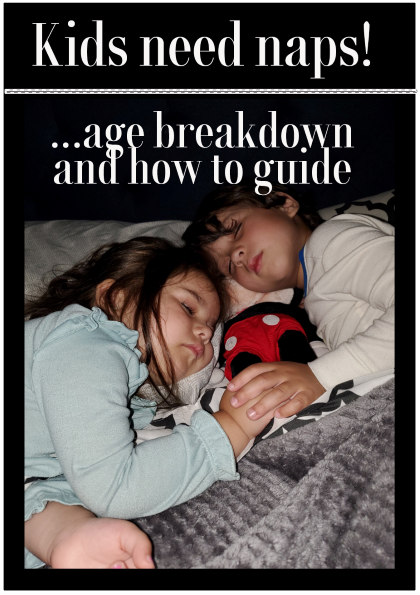As parents, we naturally engage with other parents in conversation. One thing that stands out is that many parents, of toddlers and pre-school kids ages 2 to 5, don’t have their kids take naps or simply leave it up to the kids. “Um..I mean, if he’s tired he will fall asleep on the couch.”
When they explain further, they go in to details on how their kids “don’t want to take naps” , or how “they no longer need naps”.

Listen parents…we get it. We all try our best and sometimes choosing your battle pays more dividends than fighting your kid. However, napping is not the battle you want to give up on so easily. Most young kids don’t want to do anything that is good for them. Shower? Nah. Bedtime? Nope. Vegetables? Yeah right! If we were to just throw in the towel everytime our kid says no to a nap, we would be doing a huge disservice to them.
Older kids can certainly still benefit from a daytime nap, but this is geared more to the notion or belief that kids who become “nap defiant” between 2 and 5 “must not need a nap anymore”.
Here is quick napping age guide from the National Sleep Foundation:
- 0 to 3 months : 14 to 17 hours
- 4 to 11 months: 12 to 15 hours
- 1 to 2 years: 11 to 14 hours
- 3 to 5: 10 to 13 hours
- 6 to 13: 9 to 11 hours
Now the issue is many kids 3 to 5 do not get 13 hours of sleep at night. This is why naps are important. And yes, kids vary, but from our experience the vast majority of kids will benefit tremendously from getting more sleep.
Two main points to take home here:
- Naps are critical to your child’s development
- Establish a routine
Now, before you guys think, “we are too busy to make naps a routine.” This pro tip is coming from two parents who work full time and have two little ones…nevermind the countless studies! Trust us…we know and understand how life gets in the way…but a nap in a car ride counts too and if you miss a day or two, it is ok! The point is to make naps a regular occurrence as part of their day.
NAPS ARE CRITICAL TO YOUR CHILD’S DEVELOPMENT
A 2019 University of Pennsylvania study showed that even 4th to 6th graders who napped regularly are happier, have better control of their emotions, and excel academically. This is one study, and honestly, we are depending more on our own experience and observation, the studies just back it up. Here are some amazing benefits your children get from regular naps:
- Their mood will improve equaling less tantrums. A 2011 University of Colorado study on emotional response of sleep restriction in 30 to 36 months old children noted this. Kids who napped regularly are able to respond more positively to the world around them and manage their emotions in a productive way. This means less outburst and less tantrums. Think about how cranky some adults get when they are tired!
- They learn better. It is common knowledge that sleep helps us retain information. This is even more critical for younger children who are constantly processing an overload of information. They need time to settle their minds and process it all.
- They go to bed easier at night. One of the main reasons most kids go on a wild goose chase at bed time is because they are overly tired and overly stimulated. A nap will help them stay balanced, and mentally rested, so when bed time comes you have an easier transition.
ESTABLISH A ROUTINE
Kids respond better when they know what to expect. They know what to expect in a routine. Our kids many times will tell US the schedule of the day!
“We are going to the park, then we will have lunch before nap. ”

They know. When they know, they feel they have better control, and better control equals a happier kid. At first, it will be difficult if they are not use to having a designated nap time. A routine is a must. It is just as important as a bed time routine.
Here are some helpful tips on creating a nap time routine
- The nap should be around the same time everyday. Now this does not have to be set in stone, it can variate a bit as long as it is around the same time frame (i.e. ours is always around 12 to 2pm)
- The best time for younger kids to nap is in the early afternoon, especially if they are up early. This ensures it will not affect their bedtime if they are going to bed at a healthy time (7pm to 9pm).
- Give them time and remind them. An hour before remind them that it is soon nap time. Again, it is all about letting the child know what is next so they are not surprised and have a defiant freak out.
- Allow them to bring their stuffed animals or a special toy if they are giving you a hard time…but no electronics. No IPADS, NO PHONES!
- Make sure the room is dark and invest in a sound machine. A light/star projector will also help!
**Remember, just because they tell you NO does not mean they don’t need a nap and even if it is a slight struggle to put them down, over a couple of days or weeks they will get use to it.
BUT … THERE IS MORE …
there is a pot at the end of the rainbow we call our beautiful children….ready for it?
Drum roll please!!

YOU TIME!
My wonderful and hard working fellow parents, the point of this blog is to help busy parents balance their parenthood journey and take care of themselves. Because you have kids does not mean you do not exist. It is possible (hard work but possible) to do what you want to do for yourself and still be an amazing parent!
Besides all the awesome and beneficial benefits naps provide for our kids, it also gives YOU time to unwind and do whatever the hell you want for that hour or two…or if your lucky 3! Do not take your 2, 3, 4 or 5 year old at their word on this one, they need a nap.
THEY. NEED. A. NAP.
And on days that a nap is not happening, keep your kids entertained at home with our 10 Practical At Home Activities for Kids
Happy Napping. : )

